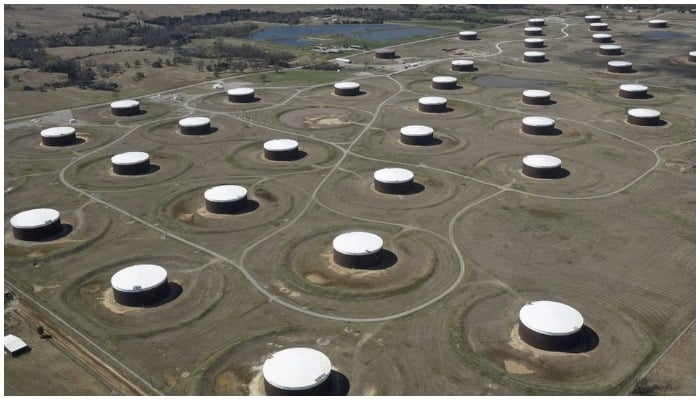
BEIJING: Oil breached $100 a barrel for the first time since 2014 on Thursday as Russia moved troops into Ukraine, sparking concerns that a war in Europe could disrupt global energy supplies.
Russia has launched a full-scale invasion of Ukraine and is targeting cities with weapons strikes, Foreign Minister Dmytro Kuleba said in a tweet.
Brent crude LCOc1hit a high of $101.34 a barrel in early Asia trade, the loftiest since September 2014, and was at $101.20 a barrel at 0423 GMT, up $4.36, or 4.5%.
US West Texas Intermediate (WTI) crude CLc1 futures jumped $4.22, or 4.6%, to $96.32 a barrel, after rising to as much as $96.51, also the highest since August 2014.
Russian President Vladimir Putin authorized a military operation in eastern Ukraine on Thursday in what could be the start of war in Europe over Russia’s demands for an end to NATO’s eastward expansion. Read full story
Russia is the world’s second-largest oil producer, which mainly sells crude to European refineries, and is the largest supplier of natural gas to Europe, providing about 35% of its supply.
“Russia’s announcement of a special military operation into Ukraine has pushed Brent to the $100/bbl mark,” said Warren Patterson, head of ING’s commodity research, adding that the oil market will nervously be awaiting what further action Western nations take against Russia.
“This growing uncertainty during a time when the oil market is already tight does leave it vulnerable, and so prices are likely to remain volatile and elevated,” he added.
Western nations and Japan on Tuesday punished Russia with new sanctions for ordering troops into separatist regions of eastern Ukraine and threatened to go further if Moscow launched an all-out invasion of its neighbor. So far, there are no sanctions on the energy trade yet.
Japan and Australia said on Thursday they were prepared to tap their oil reserves, together with other International Energy Agency (IEA) member countries, if global supplies were hit by hostilities in Ukraine.
“One factor that could act as a temporary brake on prices is the Iran nuclear deal with rumors swirling around that a new agreement could be announced, possibly as early as this week,” said Jeffrey Halley, senior market analyst at OANDA.
“However Ukraine fears, and their wider ramifications will continue to support oil prices which remain a solid buy on dips.”
The U.S. and Iran have been engaged in indirect nuclear talks in Vienna, in which a deal could lead to the removal of sanctions on Iranian oil sales and increase global supply.
Iran on Wednesday however urged Western powers to be “realistic” in talks to revive the 2015 nuclear deal, and said its top negotiator was returning to Tehran for consultations, suggesting a breakthrough in its discussions is not imminent.
Additionally, U.S. crude stockpiles rose 6 million barrels last week while distillate stocks fell, according to market sources who were citing American Petroleum Institute figures late on Tuesday.
Ahead of government data on Thursday, analysts forecast a 400,000-barrel build in crude and a drawdown in fuel stockpiles.
Gasoline inventories rose by 427,000 barrels and distillates stockpiles fell by 985,000 barrels, the API data showed according to the sources, who spoke on condition of anonymity.





